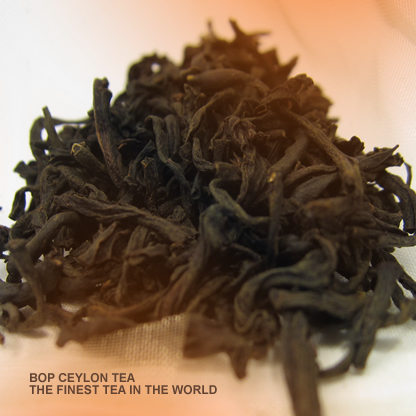
Prepare Loose Leaf Tea the Simple Method
In my opinion incorrect preparation is actually the main reason lots of
people don't enjoy tea. With every type of tea in essence having a
distinct brewing procedure, it's simple to see how it comes to be that
people often do not know the way to best brew their tea. And when you
make a crucial error, you'll get a terrible cup of tea. The good news is
that any type of tea can be prepared by employing just about any
method. Looking out for a small number of critical points is really all
it takes and I'll indicate those below.
Let's begin with the
easiest one. Black tea doesn't generally present any difficulties for
most individuals. Basically, use boiling water and let the leaves steep
for a couple of minutes. This technique will work well for pretty much
any black tea, from the widely enjoyed Assam tea, to the Chinese teas,
Ceylon teas and Nepalese teas. Darjeeling tea must not be brewed
employing this method, though. It should be made using cooler water
(80-90ºC or 180-194ºF), owing to the fact that it is not completely
oxidized and essentially similar to an oolong tea.
With a sizable
variety in the way of preparation among the different varieties of
green tea, they are generally a little more tasking to make correctly.
The top things to take care to do right are the water temperature and
the steeping times. If you employ a temperature of 80°C (176°F), you
will not have a problem with the majority of green teas.
Be sure
to use a much cooler 50°C–60°C (122°F–140°F) for the exceptional quality
Japanese tea gyokuro, though. The roasted tea houjicha is also an
exception. Perhaps the hardest possible tea to screw up, it can simply
be prepared employing boiling water. Check the guidelines indicated on
the package for a good steeping time to start with. Otherwise, go with a
minute and a half for gyokuro and two minutes for any other teas.
You
should forget all that I wrote above, if you're brewing Matcha green
tea powder; it is altogether unlike other green teas. As you might have
guessed from the name, it's a powder and as such, it requires different
implements and a distinctive and somewhat involved method of brewing.
Matcha is the tea featured in the Japanese tea ceremony and if you've
ever seen one carried out, you are familiar with how complicated it can
get to brew matcha. I could fill a book with instructions on the brewing
method of matcha, but I'll save that for another piece.
Also
somewhat more tasking to brew the right way is white tea. It calls for a
somewhat lower water temperature than green tea, as the leaves are much
more delicate. The ideal temperature for both White Hair Silver Needle
and White Peony is 75-80°C (167-176°F). I'd start with a steeping time
of 2-3 minutes and modify according to individual taste. To make your
tea stronger, bump up the steeping time; to get it milder, shorten it.
The
toughest type of tea to brew the correct way, apart from matcha, is
oolong tea. The traditional gongfu method of brewing necessitates many
short infusions using a huge amount of leaves. You'll definitely be able
to get a perfectly satisfying cup by using general methods, though. If
the water temperature is just a bit under the boiling point, the
infusion will turn out great.
I understand that the guidelines
I've presented are a bit basic. It goes without saying, to prepare the
tastiest cup, you'll need to use the guidelines for the specific type of
tea. If you don't have those, however, using my guidelines will result
in a good cup of tea, no matter the type. Of course, if you use tea bags, you don't really have to worry about any of this, but you really should be drinking using tea in loose leaf form. Tea is the most popular drink
in the world, excepting water and let's hope you will give it one more
chance, if you are one of those people who have in the past determined
they don't like it. You won't regret it.